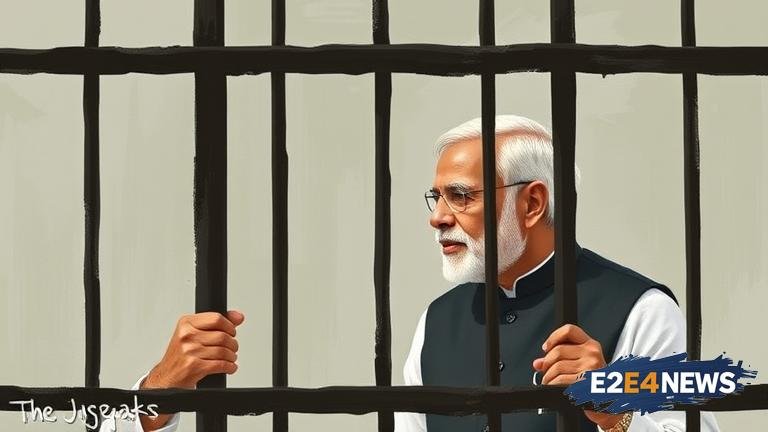The issue of whether a Prime Minister or Chief Minister can govern from jail has become a topic of discussion in India, with many questioning the feasibility and legality of such a scenario. Home Minister Amit Shah recently addressed the issue, stating that it is not possible for a Prime Minister or Chief Minister to run a country or state from jail. Shah’s comments come amidst a backdrop of several high-profile politicians being jailed or facing prosecution in India. The Indian Constitution does not explicitly prohibit a Prime Minister or Chief Minister from governing from jail, but it does outline the qualifications and disqualifications for holding such offices. According to the Constitution, a person cannot be a member of Parliament or a state legislature if they are convicted of a crime and sentenced to imprisonment for two years or more. However, if a Prime Minister or Chief Minister is jailed, it is unclear whether they would be able to continue in their role. The issue is further complicated by the fact that the Prime Minister and Chief Ministers are not just ceremonial figures, but also play a crucial role in the governance of the country and states. In the event of a Prime Minister or Chief Minister being jailed, it is likely that the government would face a constitutional crisis, with questions arising over who would assume the role of acting Prime Minister or Chief Minister. The opposition parties in India have been quick to pounce on the issue, with many calling for greater clarity on the matter. The ruling party, on the other hand, has maintained that the issue is hypothetical and that the Prime Minister and Chief Ministers are not above the law. The debate has also sparked a discussion on the role of the judiciary in India, with many questioning whether the courts have the power to intervene in such matters. The Indian judiciary has a history of independence and has not hesitated to take on the government in the past. However, the issue of whether a Prime Minister or Chief Minister can govern from jail is a complex one, with many arguing that it is a matter for the legislature to decide. The Indian Parliament has the power to make laws and amend the Constitution, and it is likely that any changes to the rules governing the Prime Minister and Chief Ministers would require a constitutional amendment. In the meantime, the debate is likely to continue, with many calling for greater transparency and accountability in government. The issue has also raised questions about the separation of powers in India, with many arguing that the judiciary, legislature, and executive must work together to ensure that the rule of law is upheld. The Indian Constitution enshrines the principles of democracy, secularism, and socialism, and it is essential that these principles are protected and upheld. The debate over whether a Prime Minister or Chief Minister can govern from jail is a critical one, with far-reaching implications for the future of Indian democracy. As the issue continues to unfold, it is likely that the Indian people will be watching with great interest, eager to see how the government and judiciary respond to the challenge. The international community is also likely to be watching, with many countries having their own experiences with politicians being jailed or facing prosecution. In conclusion, the question of whether a Prime Minister or Chief Minister can govern from jail is a complex and contentious issue, with many arguing that it is a matter for the legislature to decide. The Indian Constitution and judiciary will play a critical role in determining the outcome, and it is essential that the principles of democracy, secularism, and socialism are protected and upheld. The debate is likely to continue, with many calling for greater transparency and accountability in government, and it is essential that the Indian people are informed and engaged in the discussion.
